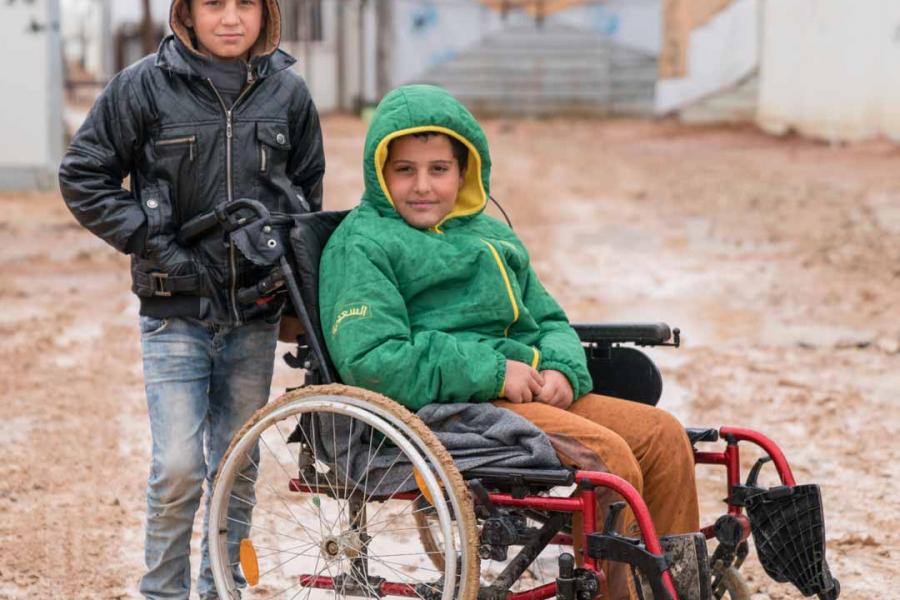
Leaving no one behind
2008 – Ongoing
Learn more
Digital and emerging technologies play a vital role in people’s empowerment and in building more inclusive societies.
In the Arab region, the Information and Communication Technology (ICT) sector continues to make positive strides towards digital inclusion. However, effective national policies are still needed to improve the e-accessibility of persons with disabilities and older persons. There is also a need to develop national technical guidelines to implement e-accessibility in public websites, e-services, ICT tools and devices, and media channels.
The Arab Digital Inclusion Platform (ADIP) supports the fulfilment of the United Nations Convention on the Rights of Persons with Disabilities, which aims to ensure that people with disabilities enjoy their human rights and fundamental freedoms. ADIP also contributes to the implementation of the United Nations Disability Inclusion Strategy that represents a United Nations system policy, action plan and accountability framework to strengthen system-wide accessibility and mainstream the rights of persons with disabilities. The project is also related to the Madrid International Plan of Action on Ageing, which suggests ways for Governments, non-governmental organizations, and other actors to reorient how their societies perceive, interact with, and care for their older citizens; as well as the Beirut Consensus on Technology for Sustainable Development in the Arab region; and the 2030 Agenda for Sustainable Development.
The ADIP project is built upon a foundation of rigorous research, conducted and evaluated by experts in the fields of technology, accessibility, gender justice, and inclusive development. The insights and outcomes derived from this comprehensive research are meticulously translated into practical toolkits, capacity building, and innovative tools.
ESCWA launched phase 1 of ADIP in 2020. In 2022, ESCWA received a certificate of recognition for the project and was declared a champion of the World Summit on the Information Society (WSIS) Prizes 2022. Now in phase 2 (launched in 2023), ADIP continues to support decision makers and stakeholders with knowledge, toolkits, capacity-building, tools and best practices to develop policies, guidelines and initiatives to strengthen e-accessibility and bridge the digital divide by implementing e-accessibility in public websites and e-services.
The adopted approach ensures that the developed tools and solutions are not only technically sound but also socially equitable and responsive to the diverse needs of all users.
The project is implemented by ESCWA with active contributions from regional and international partners, including the International Telecommunication Union (ITU) and the ITU Regional Office for the Arab States.
Several activities are developed and implemented under the project, including publications, events and innovative tools. Publications provide national policy templates and technical guidelines to support Arab countries in advancing digital accessibility for persons with disabilities and older persons. Regional events provide opportunities to discuss and share knowledge about challenges, developments, and opportunities in digital accessibility, while national capacity-building events foster collaboration in drafting national policies and technical guidelines. Innovative tools focus on promoting equitable access for all to digital information: